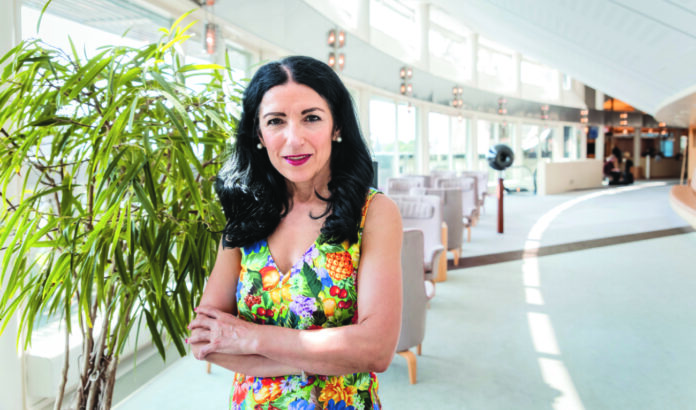STOCKHOLM: When Turkey’s president rails against “terrorists” in the Swedish Parliament, Amineh Kakabaveh is convinced he is talking about her.
The former Kurdish rebel fighter turned Swedish lawmaker has emerged as a central figure in the drama surrounding Sweden and Finland’s historic bid to join NATO. Turkey opposes NATO membership for two Nordic countries, accusing them of harboring Kurdish militants.
Kakabaveh, a strong advocate for Kurdish self-determination in the Middle East and a fierce critic of Turkish President Recep Tayyip Erdogan, holds extraordinary leverage because the Swedish government depends on her vote for its one-seat majority in Parliament.
“He cannot decide over us,” she says of Erdogan. “I stand up for Sweden’s values and Sweden’s sovereignty.”
Despite a long history of non-alignment, Sweden and Finland rushed to apply for NATO membership after Russia’s invasion of Ukraine but were stunned by opposition from Erdogan.
To allow the Nordic countries into NATO, a decision that requires unanimity among the alliance’s members, Turkey demanded they lift arms embargoes on Turkey, extradite alleged Kurdish terrorists and stop supporting Kurdish fighters in Syria. Turkey says those fighters are closely linked to the PKK, a domestic Kurdish group that Ankara and the West consider a terrorist organization.
Meeting those demands would have been difficult for the Swedes and Finns in any case, but with Sweden’s government dependent on Kavikabeh’s support for its survival, there is little room to negotiate a compromise.
“We are not used to single members of Parliament having such influence,” says Svante Cornell, director of the Institute for Security and Development Policy in Stockholm. “It’s maximal bad luck for the government’s side, you could say.”
Kakabaveh’s backing allowed Social Democratic leader Magdalena Andersson to become Sweden’s first female prime minister last year. In return, the center-left Social Democrats agreed to deepen cooperation with Kurdish authorities in northern Syria.
The minority government survived a no-confidence vote last week thanks to Kakabaveh and will need her support again on Wednesday to push its spring budget proposal through Parliament.
Kakabaveh, an independent lawmaker, says she has not yet decided how to vote and is waiting for the government to show its plans on issues close to her heart, including efforts to fight honor-based violence and oppression against women and girls in immigrant communities and how it will deal with Turkey’s demands.
“I don’t want them to retreat,” she says.
The unusual situation has raised Kakabaveh’s political profile in Sweden and internationally. It has also exposed her to criticism that she is holding Sweden’s NATO bid hostage to advance her own agenda. Kakabaveh says she has received threats from both Turkish nationalists and Sweden’s far-right fringe.
“It is a terrible situation,” says Kakabaveh, 48. “But I don’t want to sit in a corner and say, ‘I’m scared.’ I left my family, my childhood, everything I had, to stand up for what I believe in.”
Kakabaveh, who grew up in a poor Kurdish home in western Iran, says she was just 14 in the late 1980s when she joined peshmerga fighters rebelling against the Khomeini regime.

